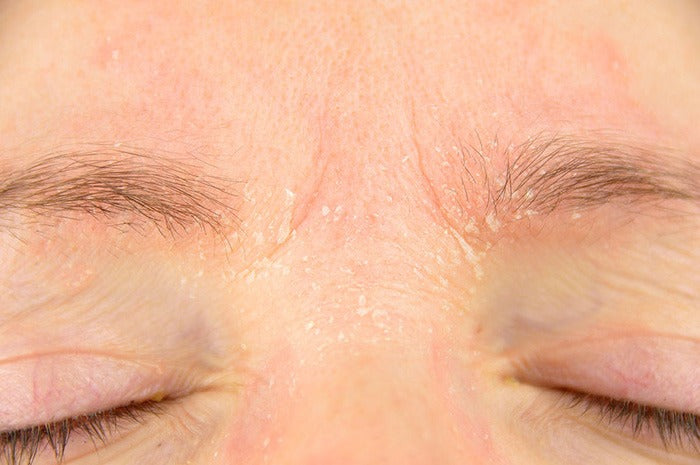
Do Natural Remedies for Eczema Really Work?
Most of us like scientific proof. And reputable research definitely suggests that natural eczema remedies can work.
That’s good news for the 31 million Americans who suffer from the condition. Their symptoms can range from itching to embarrassing patches of red skin, and even infected open sores.
What Causes Eczema?
Before we discuss natural eczema remedies, let’s look at the causes. For starters, doctors know that genes are involved. For example, if both your parents have eczema, then you have about an 80% chance of inheriting the problem. On the other hand, if only one parent has the condition, your chances drop to around 60%.
In addition, eczema is seen most often in people with a family history of other allergies and asthma.
How is Eczema Skin Different?
In people with eczema, the outer layer of skin doesn’t do its job as well as it should.
Under a microscope, that outside layer of healthy skin looks like a brick wall. The “bricks” are skin cells; and the “glue” that holds them together is a mixture of moisture and fat.
Unfortunately, eczema skin does not produce enough fat. It doesn’t retain water very well, either. So that protective outer layer gets weak. Gaps develop between skin cells, allowing bacteria to penetrate deeper layers of tissue. Soon irritation, inflammation, and infection develop.
How Do Doctors Treat Eczema?
As opposed to natural eczema remedies, traditional medicines are used to reduce the itching and lower the chances of infection. Typically, doctors prescribe:
- Antihistamines to stop itching by suppressing the immune system’s reaction to environmental irritants;
- Antibiotics to fight the threat of bacterial infection; and
- Topical Steroid Creams to suppress red patches.
Do Those Drugs Have Side Effects?
Yes, unfortunately, they can.
First, antihistamines don’t heal the skin. They only relieve itching. Furthermore, they cause drowsiness and can leave you sluggish.
Second, antibiotics do not distinguish between good and bad bacteria. They kill it all. That actually weakens your immune system, leaving you open to more severe outbreaks.
And finally, steroid creams grow less effective over time. So you continually need stronger ones to get the same result. And once you stop using the product, your eczema can go ballistic.
No wonder natural eczema remedies have gained both scientific interest and public popularity.
NATURAL ECZEMA REMEDIES – What To Do
Use a humidifier at home and work. Research shows that dry indoor air can make eczema worse. Portable home humidifiers are available at appliance stores and online. You can also humidify your home or office with house plants, which naturally increase moisture in the air.
Minimize stress. Research shows a link between stress and eczema outbreaks. Therefore, find ways to chill out regularly.
Add Vitamin D to your daily regimen. Studies show that people with severe eczema often have low levels of Vitamin D. Data also suggests that a daily D supplement can treat eczema in some patients. So it might be worth a try.
Wear soft fabrics. Scratchy materials (like wool) are a common trigger for outbreaks. Whenever possible, opt for natural fabrics (like cotton) that let your skin breathe.
For topical relief, try aloe vera from the actual plant. Snap off a leaf and squeeze out some clear gel. Spread it over the affected areas and let it soak in. Aloe vera has no negative side effects when used topically. So it’s safe to apply this natural eczema remedy as often as you like.
NATURAL ECZEMA REMEDIES – What NOT To Do
Don’t use irritating soaps. Avoid any cleanser with added perfumes, because it will dry your already dehydrated skin. Likewise, skip any soap that contains “sodium lauryl sulfate,” which breaks down natural skin proteins, leaving you more prone to outbreaks. Opt for natural cleansers.
Don’t allow indoor allergens to collect. Studies link high levels of dust mite and pet allergens to more frequent (and extreme) eczema outbreaks. Therefore, vacuum frequently with a HEPA filter vacuum. And use a chemical-free anti-allergy spray, like Easy Air Organic, to treat your home and office.
Don’t expose yourself to extreme temperatures. Getting very hot or cold can definitely trigger an outbreak.
What’s the Takeaway?
First and foremost, eczema is largely hereditary, and you can’t change your genes. On the other hand, if your DNA handed you the condition, you absolutely CAN take steps to control it. There are prescription drugs to try. Furthermore, natural eczema remedies can help relieve your symptoms and even address the underlying cause of your outbreaks. So you can feel well and live without embarrassment.
